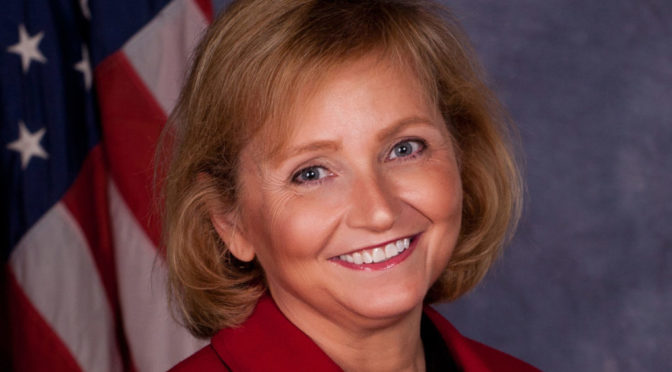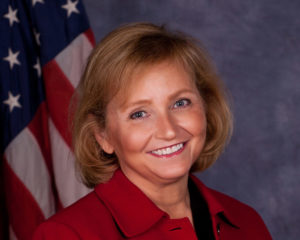FLOOR ACTION
March 16, 2020
The following bills received unanimous support and were passed Yea: 39 Nay: 0
SB 454 Creating exemptions in the Kansas Open Records Act (KORA) for election security records and cyber security records. Current law does not require an agency to disclose records of emergency or security information or procedures of a public agency if disclosure would jeopardize security of the public agency, building, or facility. The bill would not require a public agency to disclose records of emergency or security information or procedures if disclosure would jeopardize public safety, including records of or procedures related to cybersecurity plans, cybersecurity assessments, and cybersecurity vulnerabilities
SB 491 Expanding definition of “infectious disease” to include diseases designated as infectious or contagious in nature by the Secretary of Health and Environment through rules and regulations. Under current law, the court has the authority to order infectious disease testing solely for human immunodeficiency virus (HIV) and hepatitis B when it appears the transmission of body fluids from one person to another may have been involved given the nature of the crime or arrest. The bill would delete language defining infectious disease to include only HIV and hepatitis B, as it pertains to infectious disease tests the court would be authorized to order.
SB 432 Clarifying the license terms and electronic submission of tax payments, reports and documentation for holders of a special-order shipping license.
The following bill received unanimous support and was passed Yea: 38 Nay: 0
SB 417 Authorizing the sale or service of alcoholic liquor by a class A club for consumption on the licensed club premises by persons who are not members, their families, or guests during an event. Class A clubs include bona fide nonprofit social, fraternal, or war veterans’ organizations such as the American Legion.
The following bill was passed Yea: 37 Nay: 2
SB 375 Providing for the FORWARD transportation program. Although the Senate passed their statewide transportation plan 37-2, the plan differed from the House bill and was sent to a conference committee where negotiations could take place. Details were highlighted in the above sections. (I voted in favor of this bill.)
The following bill was passed Yea: 36 Nay: 3
SB 309 Placing the burden of proof on the county appraiser in certain valuation and classification appeal hearings before the district court. (I voted in favor of this bill.)
The following bill was passed Yea: 35 Nay: 2
SB 322 Making sales tax exemption permanent for certain cash rebates on sales or leases of new motor vehicles. (I voted in favor of this bill.)
The following bill was passed Yea: 35 Nay: 4
SB 474 Permits student athletes to receive compensation for the use of their name, image, likeness rights or athletic reputation when 15 other states adopt similar legislation.
The practice goes against current NCAA rules, but about 30 states are addressing legislation to make it possible. Examples include student-athletes being paid to autograph memorabilia, accepting gifts or meals, or even signing outright endorsement deals similar to the deals made by professional athletes.
As amended the bill would allow but not force any accredited non-profit institution to participate in the practice. The amendment aims to save smaller schools money because they would not be obligated to hire lawyers or fill out paperwork to opt out of the bill. (I voted in favor of this bill.)
The following bill was passed Yea: 31 Nay: 8
SB 406 Sedgwick county charter commission created to review and recommend changes regarding the structure of county government. (I voted no on this bill. This bill expands government.)
The following bill was passed Yea: 30 Nay: 9
SB 433 Allowing the director of alcoholic beverage control to suspend or revoke a license under the Kansas liquor control act or the club and drinking establishment act. (I voted no on this bill. This expands the role of the Director of ABC, and gives them more unregulated authority.)
The following bill was passed Yea: 29 Nay: 5
S Sub HB 2054 Updating field of membership requirements of credit unions and allowing privilege tax deductions on certain business and single-family residence loans. (I voted in favor of this bill.)
March 17, 2020
The following bills received unanimous support and were passed Yea: 39 Nay: 0
HB 2510 Special districts may be dissolved, and responsibilities assumed by a city.
HB 2702 Decoupling the KIT and KIR workforce training programs from the high-performance incentive fund program and enhancing the workforce training tax credit.
The following bill was passed Yea: 36 Nay: 3
HB 2595 Eliminating the 30-day delay before offering state surplus property for sale to the general public. (I voted in favor of this bill.)
The following bill was passed Yea: 31 Nay: 8
SB 346 Authorizing the insurance department to retain the proceeds of the sale of insurance department surplus real estate and any improvements thereon in the insurance department service regulation fund. (I voted no on this bill. This bill diverts the proceeds of the sale of the Insurance Commissioners building from going into KPERS, a allows it to go directly to the Insurance Commissioners.)
The following bill was passed Yea: 30 Nay: 7
SB 423 Establishing the Sedgwick county urban area nuisance abatement act. (I voted no on this bill. This bill expands government.)
The following bill was passed Yea: 27 Nay: 11
Sub SB 386 Appropriations for FY 2020, 2021 and 2022 for various state agencies. Although the Senate passed their state budget 27-11, the appropriations differed from the House bill and was sent to a conference committee where negotiations could take place. Details are highlighted in a separate section above. (I voted no on this bill. This was the compromised budget bill between the House and Senate. This budget was fiscally irresponsible, and it will cause very troubling financial problems for our state. This bill actually spends more money than the Senate’s budget bill that passed on a vote of 27-11 just a couple of days ago. This bill spends $1.2 billion more in total spending from FY 2020 to FY 2021. It spends $1 billion more in SGF spending from FY 2019 to FY 2021. The consensus revenue estimates that were used for this budget were from November of 2019, and by approving SB 66, over $.5 billion more than that estimated revenue will be spent. As a result of the Coronavirus situation, we will definitely see the actual revenues come in a lot less than what they were projected to be in November. All of this will leave the state in a dire financial situation, and faced with making some very tough decisions. It isn’t a matter of if they will slash budgets, it is a matter of how much the budget will be slashed. It isn’t a matter of if they will rob from Peter to pay Paul, it is a matter of how much they rob from the “Bank of KDOT”, KPERS, and other funds to try and balance this budget. It isn’t a matter of if they will try to raise your taxes, it is a matter of how much they will try to raise your taxes. In a time of financial uncertainty and the inevitable loss of income, we don’t increase our household budgets, we watch our spending, we bunker down and ride out the storm. The state needs to stop it’s massive spending addiction and start approaching the budget like we do in our households.)
March 18, 2020
The following appointment received unanimous support and was confirmed Yea: 39 Nay: 0
The Senate considered the appointment of Justin Nichols, to serve as a member of the State Banking Board. Nichols practices law with focuses in the banking and real estate industries.
The following resolution was passed Yea: 37 Nay: 2
HCR 5025 Ratifying and providing the continuation of the March 12, 2020, state of disaster emergency declaration for the state of Kansas passed 37-2 with an amendment from Senator Tyson and ultimately ended up passing through the conference committee where details are highlighted in the a section earlier in this report. (I voted in favor of this bill)
March 19, 2020
The following conference committee report received unanimous support and was adopted Yea: 39 Nay: 0
HCR 5025 The Senate considered and approved the conference committee changes to HCR 5025. Ratifying and providing the continuation of the March 12, 2020, state of disaster emergency declaration for the state of Kansas, which is detailed in an earlier section of this report.
The following conference committee report was adopted Yea: 37 Nay: 2
SB 173 The Senate considered and approved the conference committee changes to SB 173 – the Eisenhower legacy transportation plan. The bill was renamed to honor the 34
th President of the United States, Dwight D. Eisenhower, who first signed the Federal-Aid Highway Act in 1956 which led to the creation of interstates and highways across the country. This 10-year plan allows for the maintenance and improvement of our roads and highways in Kansas and its legislative progress is further detailed in an early section of this report. (I voted in favor of this bill.)
The following conference committee report was adopted Yea: 33 Nay: 6
HB 2168 contains the provisions of SB 225 and SB 409.
Senate Bill 225 would take advantage of available federal funds to supplement the existing Medicaid fee schedule reimbursing physicians and hospitals at above the existing Medicaid fee schedule. The Medicaid fee schedule pays physicians and hospitals about 80% of the Medicare rate and about 50% of the commercial insurance rate. This bill allows for about $221 million of federal funds to be brought in to supplement the low Medicaid fee schedule. It will help keep hospitals and physicians from cost shifting to the commercial payers as they will get better Medicaid rates. The bill was amended to prohibit the use of the State General Fund to supplement hospital provider rates. (I voted no on this bill. This bill raises the taxes on all nursing home beds, and hospital services that are provided.)
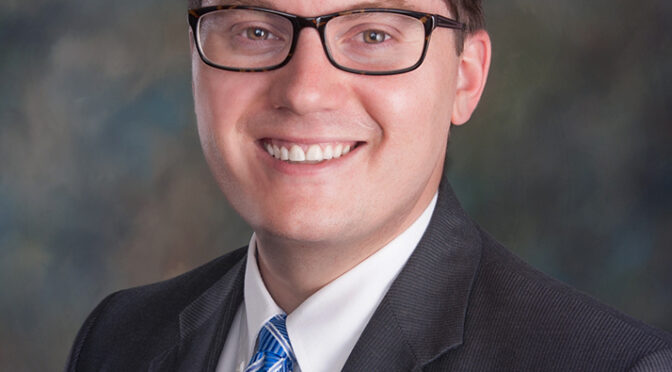
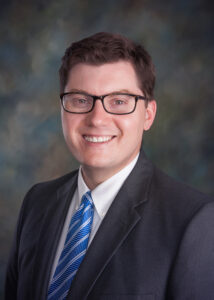
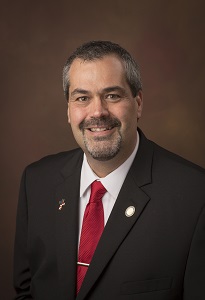
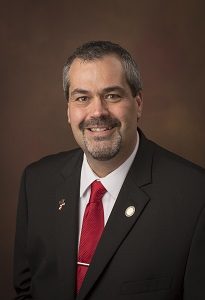 March 20, 2020 ∙ Week Ten
March 20, 2020 ∙ Week Ten

